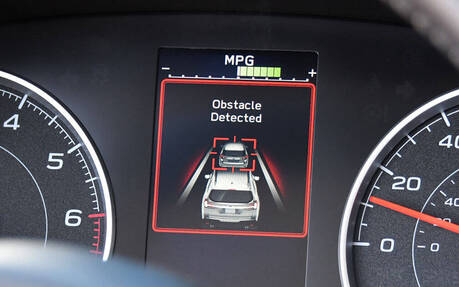Young Drivers Benefit the Most From Crash Avoidance Tech, Study Finds
A new study by the U.S. Highway Loss Data Institute (HLDI) confirms that crash avoidance systems benefit young drivers more than others.
Researchers indeed noticed that these advanced safety features are associated with larger reductions in the frequency of collision and property damage liability claims for drivers under 25 years old than those ages 25 and older.
- Also: Study: Which Are the Best Driver Assistance Systems?
- Also: Study: Drivers in Their 70s Have Lower Crash Rates Than Those Aged 35-54
The HLDI conducted separate studies of insurance claims for Honda, Kia and Subaru vehicles, comparing models equipped with the manufacturers’ crash avoidance packages against others that didn’t have them. All three offer lane departure warning and forward collision warning with some level of automatic emergency braking.
These are technologies that use cameras and sensors to monitor the roadway and alert the driver when the vehicle is drifting out of its intended lane or getting too close to an obstacle in front. Vehicles with automatic emergency braking also apply the brakes to avoid a collision if the driver doesn’t react to the warning quickly enough.

Under both collision coverage and property damage liability coverage, claim frequencies generally dropped more for drivers under age 25 than for the 25-64 and 65+ age groups. The exception was for collision claim frequency with the Honda crash avoidance features, which had about the same benefit for the youngest drivers and drivers ages 25-64.
The HLDI study deserves an asterisk, however, since crash avoidance systems can be switched off (or become non-operational due to bad weather conditions, for example) and researchers had no way to measure how much the different age groups actually used them.
Other studies have shown that modern driver assistance features can be confusing and annoying at times, so much so that many drivers opt to turn them off.
Automakers have made tremendous strides in the safety department, and the benefits for drivers are significant for sure, but there’s still a lot of work to do and awareness to raise.
